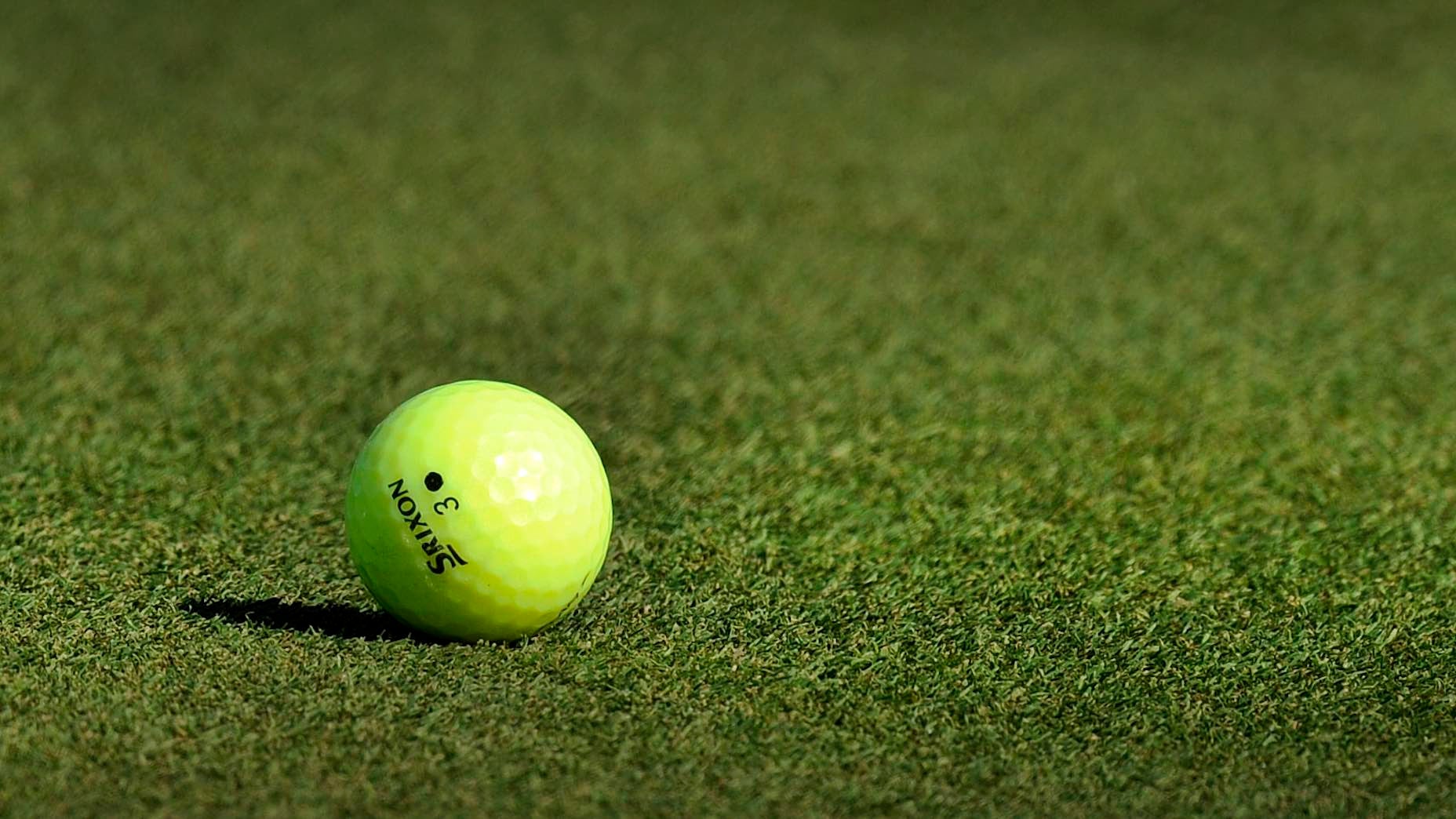Welcome to Gear Questions You’re Afraid to Ask, a GOLF.com series produced in partnership with Cleveland Golf. This week we’re exploring a question golfers have struggled with for years: Should you be playing a yellow golf ball? If you’ve never considered the idea, here’s some food for thought. Read on, rookie!
***
Wayne Levi was the first player to win with an orange golf ball on the PGA Tour in 1982. Jerry Pate also won the Players Championship with an orange version that same year. For all the press orange balls enjoyed in 1982, they seemed to quickly fade into obscurity in the coming years.
Chalk it up to how the color blended in with leaves and dirt.
Traditional white balls have always dominated the space, and that doesn’t appear to be changing anytime soon. For the most part, it’s what golfers know. The closest color competitor over the last decade is yellow, but it wasn’t until the more recently that ball manufacturers started warming to the idea of adding a second color option in their premium line.
Now you can find Tour-quality balls from Srixon, TaylorMade, Callaway and Titleist with a yellow cover. Even pros have embraced the idea of using yellow, which begs the question: Should more amateur golfers play a yellow ball?
Srixon Q-Star golf balls
Simply put, yellow golf balls are a lot easier to see. This is especially true with the fluorescent or neon yellow hue found on many balls, including the Srixon Q-Star and Q-Star Tour.
Professional golfers have caddies, spotters and sometimes galleries to help them keep an eye on their golf both in the air and when/where it lands. But for the rest of us, we need all the help we can get to prevent losing a golf ball, especially when you lose one in bounds, which is easily one of golf’s most frustrating scenarios.
A yellow golf ball can definitely lessen your chances of a lost ball, which in turn may help you and your foursome pick up the pace and spend less time searching and more time playing. That’s a win for everyone.
Do yellow balls bring the coolness factor? Not to sound a bit judgy, but for a while, there seemed to be a stigma attached to the ball that kept better players from throwing one in the bag. Back then, yellow tended to be associated with distance-driven offerings, which were rock hard and uncontrollable.
Fast forward from a stuffy, narrow-minded and judgmental golf past to today — yellow golf balls are just as at home on the first tee of your local club as are white ones. The stigma no longer exists; new golfers and experienced players are playing yellow these days not just because they’re easier to find, but because there’s some legitimate science behind why a yellow ball might even help you play better.
Srixon, one of the leading yellow golf ball manufacturers today, has said on record that “yellow is the most visible color in the visual spectrum and psychology has correlated green with calming and stress relief.” So not only is yellow easier to see, it just might help you relax as well.
Here’s more good news. Ball manufacturers make yellow golf balls in more varieties than ever before — even some premium golf ball lines come with yellow options. We suspect that as younger players grow into the game during an era where yellow golf balls are the norm, we’ll continue to see the color grow in popularity much the way yellow tennis balls eventually became the standard over white tennis balls.
As far as playing a yellow ball yourself, we think the color has a bright future. It might never become the de facto choice, but it offers more than enough benefits to garner a spot in the ball rotation.
Want to really dial in your shots? Schedule a club and ball fitting with the experts at our sister company, True Spec Golf.
